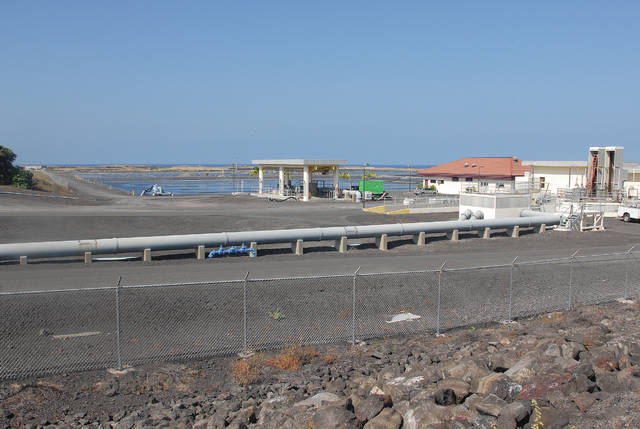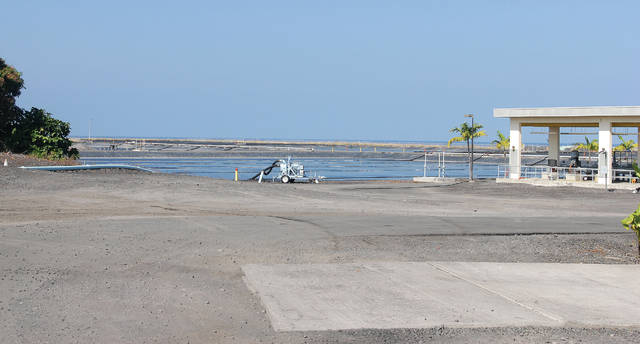HILO — Should the burden of keeping the oceans clean fall primarily on those connected to a sewer system?
That was the question Monday, before a County Council panel unanimously advanced a bill almost doubling sewer fees over the next three years. Bill 210 now goes to the Environmental Management Commission before coming back to the council for two more votes.
Mayor Harry Kim, addressing the council, said he realized his administration has asked the council to raise taxes and fees a lot lately. Unfortunately, he said, many programs have been neglected over the past years, and improvements are needed.
“In reviewing this, it seems like in this very short time, we’ve been coming to the County Council so many times for either a tax increase or a rate increase,” Kim said, adding that the council has to “play a little catch-up,” because necessary increases had been put off.
The administration’s goal, said Environmental Management Director Bill Kucharski, is to have the daily operations of the county Wastewater Division paid by user fees, rather than subsidized by the county’s general fund, which primarily comes from property taxes.
The fee hikes would bring in an extra $17 million over the three years. They would start March 1, if approved.
Kucharski wants to add 10 new positions to maintain and manage existing and planned facilities.
Hawaii County has by far the lowest sewer fees in the state, and they haven’t been raised since 2002, Kucharski said. The county is under a mandate to close 50,000 cesspools over the next 30 years.
“I don’t think there’s anyone who would say, ‘I want dirty water,’ I don’t think there’s anyone who’s going to say, ‘we don’t want our beaches swimmable,’” Kucharski said. “It’s a hardship on some and inconvenience to others, but … we have a charter for protecting the environment for the County of Hawaii.”
But some council members questioned why the responsibility should fall solely on those on county sewer lines, when individual cesspools have long been pointed to as a problem. Everyone on the island should carry the load, and that’s best done through property taxes, they said.
Hilo Councilman Aaron Chung acknowledged the wastewater program has long been neglected. He noted he’s voted for a litany of taxes and fees over the years, but he cautioned he might vote against this one.
“No one can accuse me of being gun shy when it comes to raising taxes,” Chung said. “People who have sewers next to their properties … they’re bearing the burden of protecting the environment. … That’s why I think it’s appropriate to have some subsidize with property taxes.”
Chung suggested a “clean-water surcharge” on everyone.
“That would be a fairer program, I would think,” Chung said.
Currently, $7.5 million of the $12.9 million operating budget for sewers comes from user fees. About $3 million comes from the general fund and the rest is made up with fund balance and reserves, according to county budget documents.
The current $27 monthly fee for single-family and multi-family residential units would increase to $39 monthly on March 1, $46 monthly in 2020 and $52 monthly in 2021, under the plan. Nonresidential rates would increase from $22 monthly to $50 monthly March 1 to $59 monthly in 2020 and $66 monthly in 2021.
“No one ever wants to talk about raising fees,” said Kohala Councilman Tim Richards. “We’re all sensitive to the environmental impacts of not doing something, but we’re all sensitive to the economic impacts of doing something.”
Kucharski said the county is under a mandate to make the sewer system self-sufficient. The rate study began in 2016, he said.
“We are required by (the U.S. Environmental Protection Agency),” he said. “EPA requires we have what they call a sustainable operation for sewer system. That means it’s supposed to pay for itself.”


